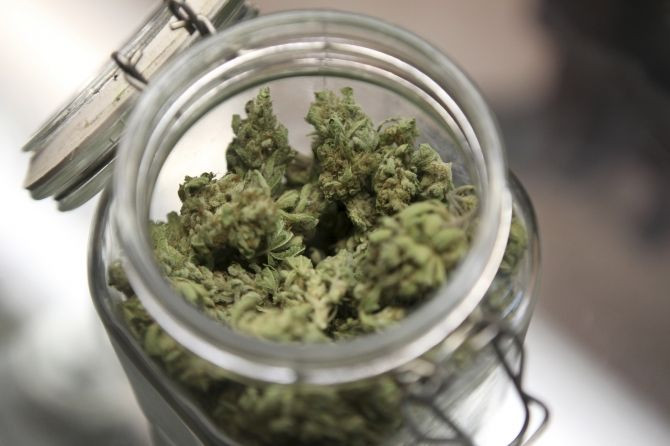Earth-Shaking Study Finds that Marijuana May Lessen Severity of Epileptic Seizures

For the 2 million Americans who suffer from epileptic seizures, there may be relief in sight. A new study has found that a compound from the cannabis plant may help patients decrease the severity of epileptic seizures, and with fewer side effects than current anti-convulsive medications.
The study, conducted by Ben Whalley and his colleagues at the University of Reading and the University of London, both in the United Kingdom, was based on historical, anecdotal evidence that marijuana use can control human seizures. Whalley and his team decided to investigate a little-known chemical called CBDV, which is found in cannabis and other plants. CBDV is one of 100 non-psychoactive cannabinoids found in marijuana.
The team induced seizures in live rats and mice. In animals that had been given the drug, they had less severe seizures and were less likely to die. The drug also had fewer side effects and was better-tolerated by the rats and mice than other anti-convulsive drugs.
Epilepsy impacts 1 percent of the population - but its impact is dire. Left uncontrolled, seizures can lead to depression, cognitive decline and even death. But if controlled, the risk of death drops astronomically. And, though epilepsy is only diagnosed in 1 percent of the population, about 10 percent will suffer from a seizure during their lifetime.
Researchers have their reservations. Animal models are not always accurate when the results are applied to humans. In addition, the epileptic seizures were induced, which means that the underlying mechanisms of the seizures may not resemble those of people. In fact, epilepsy can be caused by many different conditions and oftentimes doctors are unable to pinpoint a precise cause for epilepsy.
It will be decided next year whether or not the drug will be tested on humans. Though marijuana is controversial, having been linked to memory damage, anxiety, and testicular cancer, chemicals in the cannabis plant are currently being tested by pharmaceutical companies for various ailments. Earlier this year, Medical Daily reported that GW Pharmaceuticals, the same company behind this epilepsy study, was targeting obesity-related illness with the plant.
The CDC reports that epilepsy results in $15 billion a year in medical bills and lost wages.
The study conducted by Whalley and his team was published in the British Journal of Pharmacology.
Published by Medicaldaily.com



























